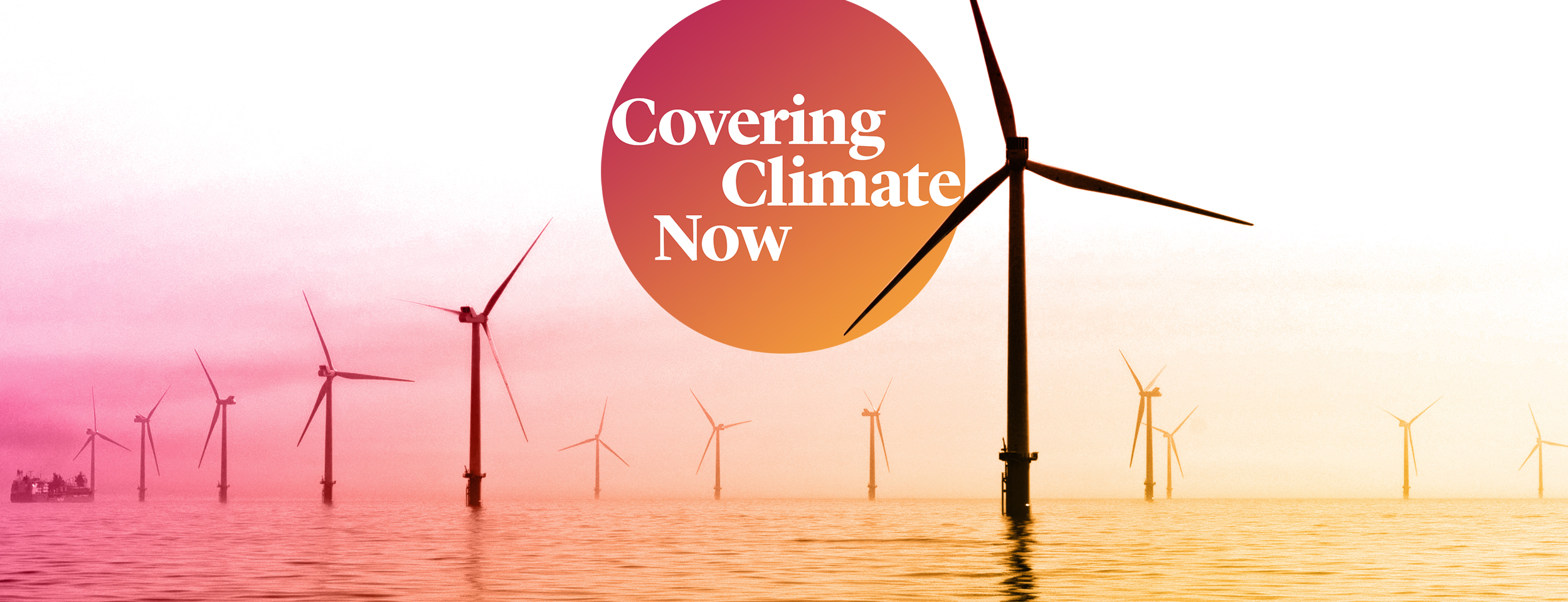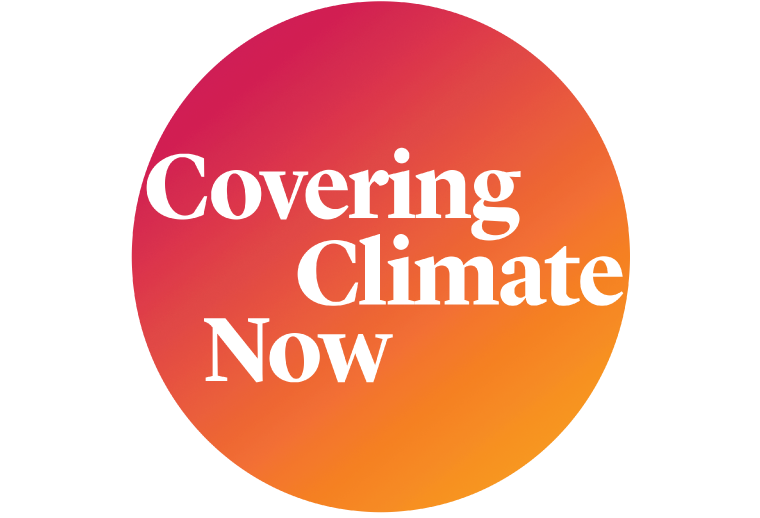Sign up for the daily CJR newsletter.
As the climate crisis quickens with each passing day—temperatures reached a stunning 69 degrees Fahrenheit in Antarctica last week—how much climate news will most Americans be hearing as they prepare for the November elections?
Four years ago, ahead of the 2016 elections, there was climate silence. Only one of the hundreds of questions journalists asked during Democratic and Republican presidential debates addressed climate change—and that was one more than in 2012, 2008, or any of the preceding presidential elections—even as scientists, activists, and governments around the world implored Washington to help contain the gathering crisis. The nation’s major news organizations treated climate change as a virtual non-issue, and voters acted accordingly, electing an unabashed climate denier who as president has seemingly delighted in boosting fossil fuels and trashing environmental protections, including the Paris Agreement signed by virtually all of the world’s governments, which pledged to “significantly reduce the risks and impacts of climate change.”
America’s journalists must do much better in 2020.
There are promising signs so far. Network television—which continues to attract the largest audiences in media, in an era with no shortage of options—is showing new interest in the climate story. The press as a whole seems increasingly aware of climate change and its dangers, even if most outlets still refrain from echoing the thousands of scientists who now call it an “emergency.” Opinion-leading outlets, including the Washington Post, the New York Times, and National Public Radio, continue to improve their coverage, while outlets that emphasize climate coverage as part of their brand, such as The Guardian, PBS NewsHour, and Bloomberg, which recently launched Bloomberg Green, continue to light a path for the media writ large. Overall, however, the climate story remains marginal on the American news agenda.
ICYMI: Playing at climate catastrophe
It’s not too late for climate change to become a central part of the 2020 election narrative. Opinion polls indicate that most Americans see climate change as a top concern; this is especially so for people under age 40, including self-identified Republicans. So shouldn’t news organizations give climate change the same attention they devote to health care and the economy? They might start by ending their practice of siloing climate change as solely a science or weather story and instead include it in their broader electoral coverage. And they must inform voters about what all candidates—presidential, congressional, state, or local—think about the climate crisis; what compromising campaign contributions they may have received; what climate policies they have supported in the past; and, above all, what they advocate doing now.
In particular, will the media finally do justice to the Green New Deal—the policy, introduced by Rep. Alexandria Ocasio-Cortez and Sen. Edward Markey, that strives to match the scale and speed of the climate crisis? Fox News, which has given the Green New Deal far more attention than any other network, has demonically caricatured it as eco-socialism run amok; without fair-minded coverage from more credible outlets, this narrative risks taking hold. Some coverage has even echoed Fox’s framing by focusing on whether a Green New Deal is politically risky for Democrats. What voters actually need is help understanding and evaluating the substance of a Green New Deal: how it would attempt to tackle the climate crisis through massive investments in green technologies and jobs; what this would cost; where the money would come from; and, most crucially, what the costs of inaction would be.
Tonight’s Democratic presidential debate, hosted by NBC News, holds great potential for jumpstarting more climate-centric coverage ahead of November. The candidates will include Michael Bloomberg, who made aggressive climate action a hallmark of his three terms as the former mayor of New York City. And one of the moderators will be Vanessa Hauc, a correspondent for NBC’s Spanish-language partner, Telemundo, who has reported on climate change for years, enabling her to ask informed, probing questions. (The Latinx community, which stands to be disproportionately affected by climate change, tends to care more about the issue than any other US demographic group, polls indicate.)
Including a climate specialist such as Hauc on debate panels should be standard practice for news outlets; among other things, it could help avoid missteps like the one that marred climate discussion during the January 14 debate hosted by CNN. That night, when asked about his opposition to president Donald Trump’s then-pending US-Canada-Mexico trade deal, Senator Bernie Sanders said it overlooked “the greatest threat facing this planet into consideration.” A CNN moderator interrupted to say, “We’re going to get to climate, but we need to stay on trade.” Sanders shot back, accurately, “They’re the same.” (CNN does deserve credit for devoting seven hours of programming in September to discussing climate policy with Democratic candidates, even if those discussions were scheduled during the low-rated Saturday evening hours.)
Whatever else the 2020 election is, there can be no doubt that it is a climate election. Scientists have long identified 2020 as a cardinal date in the history of the climate crisis. By 2020, they said, it would be clear whether greenhouse gas emissions were being sufficiently curbed to forestall grave, perhaps irreversible damage to civilization. The approaches of America’s two major political parties to this challenge could hardly be more different. To President Trump and many Republicans, there is no such thing as a climate crisis; their party has long rejected climate science and insisted that producing more oil, gas, and coal can only be good for America. Democrats, meanwhile, accept the scientific consensus and see the climate crisis as an urgent priority, and most of their presidential candidates support one version or another of a Green New Deal (though they still differ on issues including fracking and fossil-fuel exports). On November 3, America’s voters will choose one approach or the other. It is journalists’ job to give them the facts and analysis they need to make up their minds.
Some additional climate news and coverage of note:
- On Monday, Jeff Bezos, Amazon’s founder and chief executive and the world’s richest man, committed $10 billion to combatting the climate crisis. Much coverage noted, correctly, that Amazon’s own carbon footprint is enormous—and that, in January, the company threatened to fire employees who spoke out about its role in the climate crisis. As Matt Reynolds, Wired’s science editor in the UK, argues: “While Bezos has—belatedly—stepped up to the plate with big gestures of climate support, this shouldn’t distract from the more mundane ways that Amazon continues to avoid its climate responsibility.”
- In a short and touching feature, The Guardian profiles the young people in small communities and rural areas around the world who are following the lead of climate strikers like Greta Thunberg but having to go it alone. It can be isolating work, the young people explain, but social media, including the Twitter page Solo But Not Alone, has helped broaden their reach. “We really want to make sure that even if only one person is striking, their voice is heard and it is loud,” one striker tells The Guardian.
- A new study shows that nearly one-fifth of the Amazon rainforest is now emitting more carbon than it absorbs, according to the BBC—meaning that one of the earth’s essential tools for slowing climate change may instead be turning into a carbon source. With deforestation on the rise in Brazil and a government in the country that is hostile towards conservation efforts, experts warn the forest may reach a “tipping point.”
- The New York Times has a deeply reported and visually rich tale of sea level rise in two metropolitan areas: the San Francisco Bay Area and Manila, Philippines. In both places, “climate change has magnified years of short-sighted decisions,” the Times writes. Now, with more water inevitably on its way over the course of this century, people are left only to cope. How they do so will depend “mostly on the accident of your birth: Whether you were born rich or poor, in a wealthy country or a struggling one, whether you have insurance or not, whether your property is worth millions or is little more than a tin roof.”
- For Yale Environment 360, veteran climate writer David Victor proposes a framework for climate-change mitigation based on rapid technological innovation across industries. Traditional diplomacy is unlikely on its own to move fast enough to face the crisis, Victor argues, given its imperative for consensus among a multitude of actors; revolutions in various economic sectors, instead, may create the system of incentives that is needed for government leaders to finally embrace climate action.
PREVIOUSLY: Does the climate crisis threaten the end of big oil?
Has America ever needed a media defender more than now? Help us by joining CJR today.









